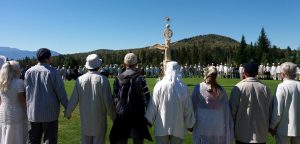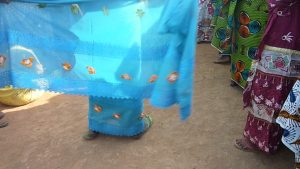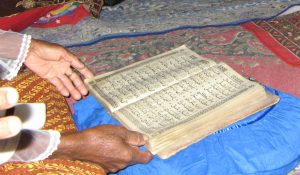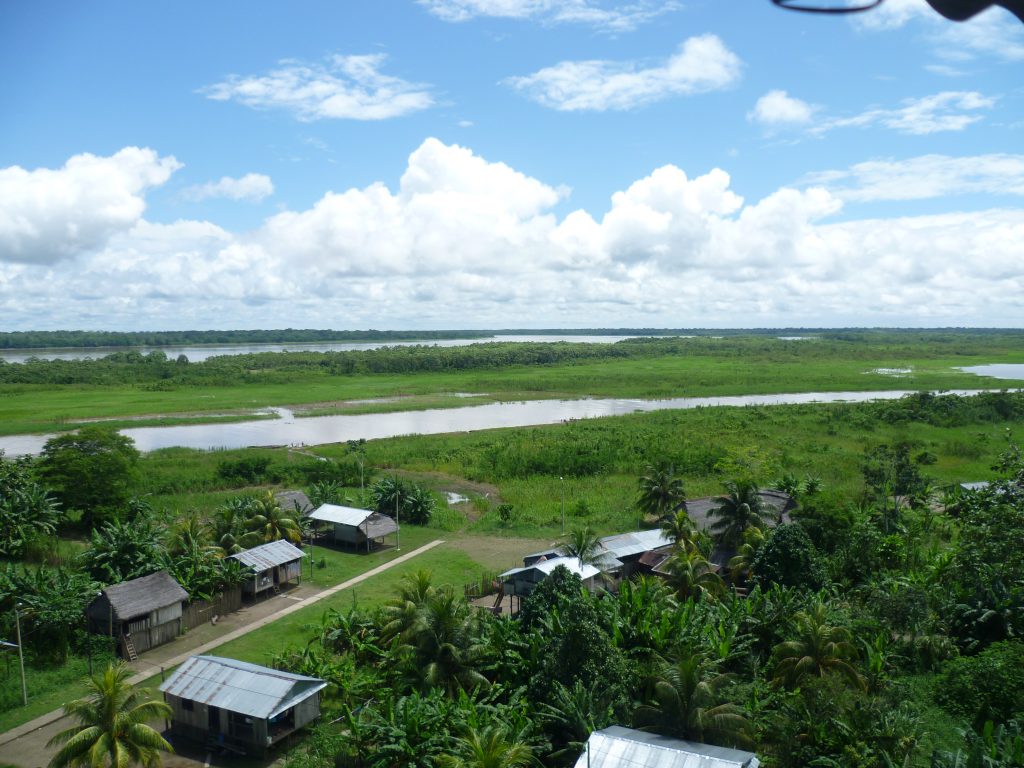Igor Mikeshin: “The Construction of Sex and Christian Family in Russian Evangelical Christianity”
Igor’s study focuses on biblical literalism as a basis for conversion, faith, and practice in Russian Evangelicalism. It deals with the formation, construction, and formulation of gender and family norms among Russian Evangelical Christians with body, space and language. The community is conservative in terms of theology and morals. Igor puts this conservatism under scrutiny and relates it to the ethical discourse of the present-day Russia. How do Russian Evangelicals perceive their body and sexuality? What is the role of children in a Christian family? How do they interpret and apply the biblical text in their everyday family life? How do Russian Evangelical gender and family values relate to the concepts of ethics and secularization in the context of the present-day Russia? Igor’s research will build on his doctoral study and three months of fieldwork in the Russian Baptist community with a focus on gender and family.

Minna Kulmala: “Hope Has a Place: Conversion, Ethics and Emotions in the Siberian Last Testament Church Community”
Kulmala’s research explores the impacts of the collapse of the Soviet Union, societal insecurity, individualization and global concerns, such as climate change, on growing religiosity and transforming ethics in Russia. In her study, Kulmala focuses on an endogenously Russian new religious movement, the Last Testament Church, which was born in the turbulent early 1990s around a messianic figure, Vissarion. Until today, thousands of Vissarion´s followers live deep in the Siberian taiga preparing an “ark”, a self-sufficient eco-settlement, in which “purified souls” will greet the bright future after the Apocalypse. Kulmala addresses how conversion, defined by Vissarionites as constant and conscious ethical self-transformation, influences believers´ physical and psychosocial positioning in the world and looks into how their alternative lifestyle addresses the wider society today. Special attention is devoted to the role of emotions and affects in the formation of moral agency, constantly taking new shapes in the flux of social and symbolic live. The research will be conducted along with Kulmala’s ongoing doctoral studies and it will be based on a ten-month fieldwork that she has already conducted for the doctoral dissertation in Siberia. A supplementary three-month fieldwork will be conducted during the project.

Tea Virtanen: “The Faithful on the Margin: Humiliation and Moral Choice in Muslim Cameroon”
Virtanen’s study aims at exploring the process of cultural humiliation and the ethically informed choices that it triggers among the Muslim Mbororo (Fulani) of Cameroon. The specific focus is on the recent mass entry of the Mbororo into the Senegalese Islamic Sufi movement called Fayda Tijaniyya which is examined as a specific ethico-moral response to sociocultural denigration that the Mbororo frequently face in various domains of their religious and secular public lives. The central question is what makes the Tijaniyya movement a more ethical and desirable choice compared to other options. The study traces the motivation both to the doctrinal and affective aspects of Fayda Tijaniyya itself and to the prevalent urge among the Mbororo to construct their ethical subjecthood in relation to and as distinct from the ruling Muslim villagers. The study is based on fieldwork data collected in 2013-2018 in Cameroon. An additional three-month fieldwork will be carried out to address the specific issues being considered in this project.

Timo Kaartinen: “Islamic culture and its publics in Indonesia”
The obligation, written in the Indonesian constitution from 1945, of each citizen to profess one of five world religions was a compromise between secular nationalism and the recognition that Indonesia has the world’s largest population of Muslim citizens. Kaartinen’s part of the project explores the deepening entanglement of religion and politics as the focus of religious authority moves away from community-based traditional officeholders (imams, kiyayis) to educated teachers of religion (ustads) working among urban people and mass media. By studying the repertoires of religious discipline and self-expression through which people express alignment or discomfort with the new visibility of Islamic practice in the public sphere, Kaartinen asks what ethical stances are raised among the emerging Islamic publics, how these stances are indexed by elements of Islamic culture, and how their public recognition intersects with the requirements of citizenship. The ethnographic context of the study is the Eastern Indonesian islands of Maluku where Kaartinen has done research on performing arts, inter-island migrations, and urban ethnicity since 1992.

Toomas Gross: “Ethical self-making in the context of changing spiritual and physical cultures in Estonia”
The aims and focus of Gross’s research contribution to this project are twofold. Firstly, his subproject scrutinises the emergent modes of spirituality, “believing without belonging” (Davie, 1990), as well as both organised and non-organised forms of secular humanism and non-religion in Estonia, with a particular focus on their discourse on health, body, and environment. Secondly, Gross’s subproject studies the changes in the exercise culture in the country, with a specific focus on recreational long-distance running that is approached as a way of not only disciplining the body, but also as a means of acquiring novel experiences and understandings related to one’s embodied self as well as the environment one runs in. The uniting feature of both research angles is that of ethical self-making, that, building on Foucault (1984, 1985), can be understood as consisting of various practices and techniques that people, drawing from available and imagined cultural models, perform on themselves to become moral subjects.

Sidney Castillo: “Becoming through plants: Ayahuasca rituals and ethical self-making among the indigenous peoples of northeastern Peru”
Ayahuasca rituals are the purposeful drinking of the ayahuasca psychoactive brew to induce strong visionary and bodily experiences. The objective of Castillo’s research is to study the role of these rituals in the formation of ethical subjectivities, i.e. how people learn what to consider “good to be”, or “ought to do” in a particular context, and further, examine how these subjectivities are related to local notions of wellbeing. For this purpose, he will carry a year-long ethnographic study (January 2022-2023) in the rainforest of Peru, at two distinct locations where ayahuasca rituals are prominent cultural practices for indigenous peoples: Santa Maria de Nieva (Amazonas), a small town of the Awajún people; and Takiwasi (San Martin), a center for treating substance abuse disorders that employs people with indigenous background (Quechua-Lamista).

